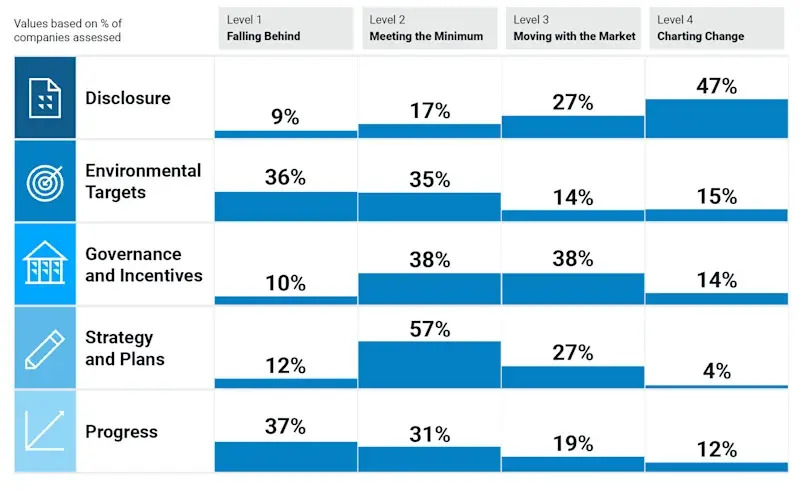The connection between economic growth and environmental health is undeniable, with experts warning that inaction on climate change could reduce global GDP by 18%—equivalent to $38 trillion—by 2050. Despite this looming threat, greenhouse gas emissions continue to rise, and unchecked economic growth is putting immense pressure on natural ecosystems.
To evaluate how effectively large corporations are integrating sustainability into their operations, CDP, in collaboration with Oliver Wyman and the World Economic Forum, has introduced the Corporate Health Check. This annual assessment measures corporate progress on climate and nature goals, using indicators developed as part of the State of Nature and Climate publication. The findings, informed by CDP data and insights from the Potsdam Institute for Climate Impact Research (PIK), reveal a concerning gap between corporate action and environmental imperatives.
Since 2000, CDP has been at the forefront of environmental disclosure, providing insights into how businesses respond to climate challenges. Today, nearly 25,000 companies, representing 67% of global market capitalisation, disclose their environmental data through CDP. However, the 2025 Corporate Health Check reveals that progress remains insufficient.
The report highlights that only 10% of assessed companies have integrated Earth-positive decision-making into their business models. Many companies remain at the lowest levels of the health check, meeting only the minimum standards.
Companies disclosing through CDP have reduced emissions by 2% annually, even as global emissions rose by 1% each year. However, only one-third of businesses are on track to meet their own climate targets, with European firms leading progress over other regions.
Firms achieving the most significant progress link climate goals to governance measures, such as tying executive pay to sustainability targets. Among leading companies, eight in ten have incorporated such links into their strategies.
Businesses embracing sustainability are demonstrating that it is possible to reduce environmental impacts while maintaining competitiveness in the market.
The report shows that only 1% of assessed companies are achieving the highest benchmarks for climate and nature progress. These top-performing organisations have successfully integrated disclosure data into their governance and strategies, pulling key levers to drive meaningful action. However, the majority of companies lack the ambition necessary to address the urgent climate and nature crises.
The findings also highlight the need for supportive policy frameworks. Policymakers must create conditions that incentivise Earth-positive decisions, ensuring that companies are rewarded for sustainability efforts.




















